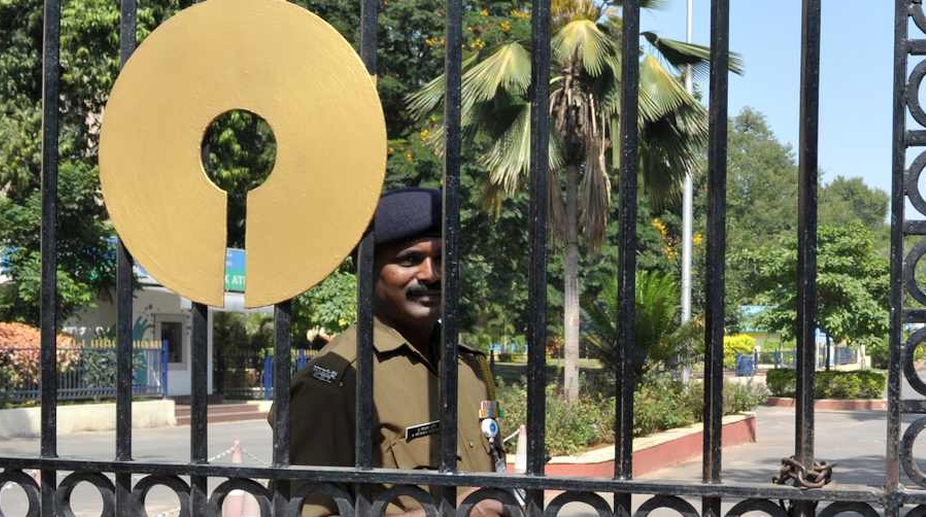SBI forecasts GDP growth for Q3 FY25 at 6.2-6.3%
The State Bank of India (SBI) has forecast GDP growth for Q3 FY25 at 6.2-6.3 per cent. ”Assuming there are…

(PHOTO: AFP)
In the backdrop of the government approving constitution of an alternate mechanism to oversee proposals of bank mergers, State Bank of India Managing Director Dinesh Khara on Thursday said the employees must be kept on board to alleviate their concerns during the process of consolidation.
“If we start looking at bank mergers from human angle, what is required is that the principal bank will have to address concerns of its own employees and also those of the entities getting merged. There are anxieties in terms of seniority issues and dislocation. If addressed objectively, human issues get addressed well. During the course of journey employees should be kept on board, else anxiety keeps on growing,” Khara told BTVi in an interview.
Advertisement
The mechanism approved to be set up to oversee public sector banks’ (PSBs) mergers, will give an in-principle approval to proposals brought by banks. Once the approval is accorded by this structure, the bank boards will deliberate on considerations, including profitability.
Advertisement
“Merger invariably involves pain, but eventually leads to gains in terms of efficiency parameters, optimising structure, leveraging branch network and improving treasury yields. The journey involves a bit of stress in the sense that the banks need to be aligned. Consider the fact that it will benefit in terms of credit scale and operations efficiency. Merger yields gains, but over a period of time, not in a quarter or so,” he said.
Khara said that the pain of banks needs to be addressed for which the options are not many. Thus, consolidation is a good option if banks relatively of the same size are merged.
“The pain of banks having higher stress needs to be addressed. Options are not too many. But if it gets addressed by relatively stronger bank merging with relatively weaker bank — not totally weak — it will have benefit of risk management system. The better practices of relatively stronger bank get applied to the relatively weaker bank,” he said.
“If such a merger is attempted, in initial case, banks may feel pain in terms of increased provisioning, but they will be able to pass on better assessment skills, which will create value to the book. Eventually the interest is in gaining vitality,” he added.
The Managing Director said that however the banks should have the strength to withstand the initial stress.
“This kind of reorganisation is happening, it’s a good way to merge. The only thing is that the entity in which the weaker bank is getting merged, it should have ability to withstand stress,” he said.
He added that any timing for merger would be good, provided there was managerial bandwidth to take care of the increased provisioning.
“When it comes to recognition of stress in the system, there are various norms. Both banks will have to align their books. In the process both banks could be at different provisioning level. If the stress is recognised, it is making the bank future ready,” he said.
Khara said that if the banks are in the same region, they would be catering to the same kind of customer base.
“They will be in a better position to administratively equip themselves to understand the customer. In different geographies, non-performing asset (NPA) levels are different. The bank understands local processes better and accordingly develops mitigation measures. In similar geographies, they would be able to reap economies of scale and work out the processes,” he said.
Advertisement